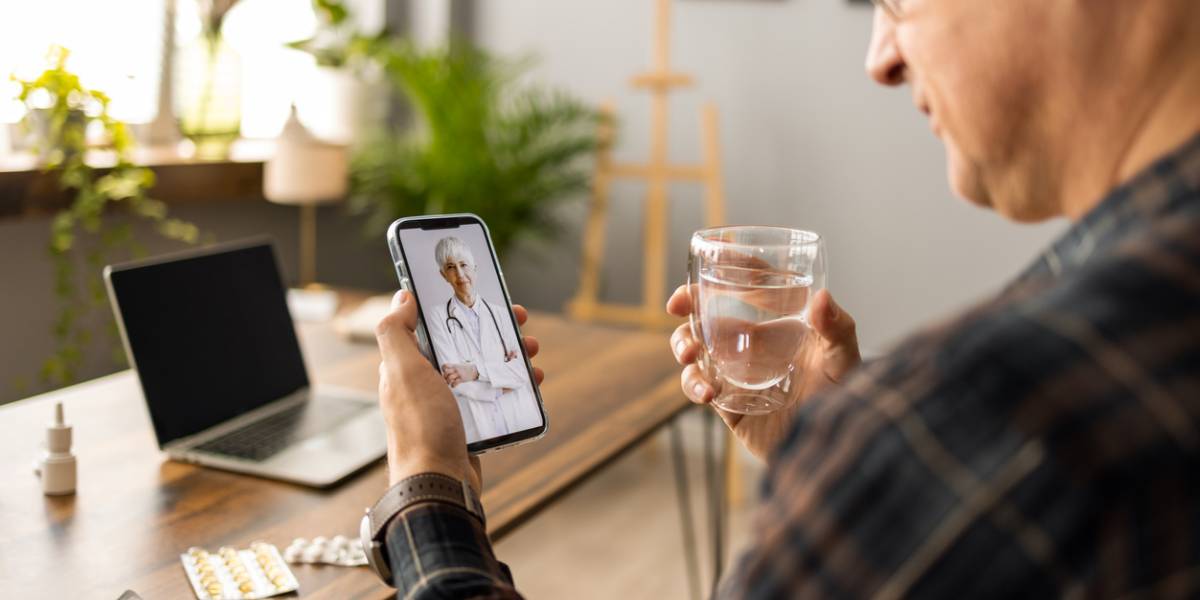General practitioners (GPs) are more likely to miss health complications during a virtual appointment compared to an in-person consultation, latest findings have revealed.
To help manage the demand for face-to-face appointments, patients are now encouraged to communicate with their doctor virtually by attending online consultations and using digital medical forms.
However, the online platforms fail to gather the correct information staff need to triage patients and make a diagnosis, the Health Services Safety Investigations Body (HSSIB) has claimed.
According to the report, harmful delays in identifying and diagnosing diseases have occurred due to the ‘digital-first’ NHS motto.
- One in three people have given up seeing a GP, poll shows
- Weight loss: people more likely to join programmes if GPs use positive language
- GP shares key factors that are vital for our health
GPs have admitted that crucial signs that would normally be spotted in face-to-face appointments could be missed virtually.
Individuals who do not have access to a computer or smartphone are also missing out on digital services that were traditionally carried out in person.
The report said: “While online tools can be of benefit to GPs and patients, they had contributed to some patient safety incidents.”
A delay in a cancer diagnosis due to online tools saw one patient needing complex surgery, the report has revealed.
- Artificial intelligence can be a ‘collaborative tool’ for doctors at risk of burnout
- Calls for better regulation of medics given senior roles despite not being qualified doctors
- Patients prefer ChatGPT responses over doctors’ responses
Nick Woodier, Senior Safety Investigator at the HSSIB, said: “The future of healthcare includes technology to help deliver care but this needs to be done with recognition of risks to safety.”
In May 2024, roughly 30.8 million GP appointments took place, with 19.8 million carried out in-person, 7.8 million over the phone and 1.4 million online or via a video.
Dennis Reed, Director of Silver Voices, said: “This official safety report backs up the safety concerns we have been raising since the end of the pandemic.”
Rachel Power, Chief Executive of the Patients Association, said: “Choice about how a patient accesses health services must be protected, including non-digital options.”
A Department of Health spokesman said: “Patients should be able to interact with their GP in the manner they choose, whether that’s online or in person.”




